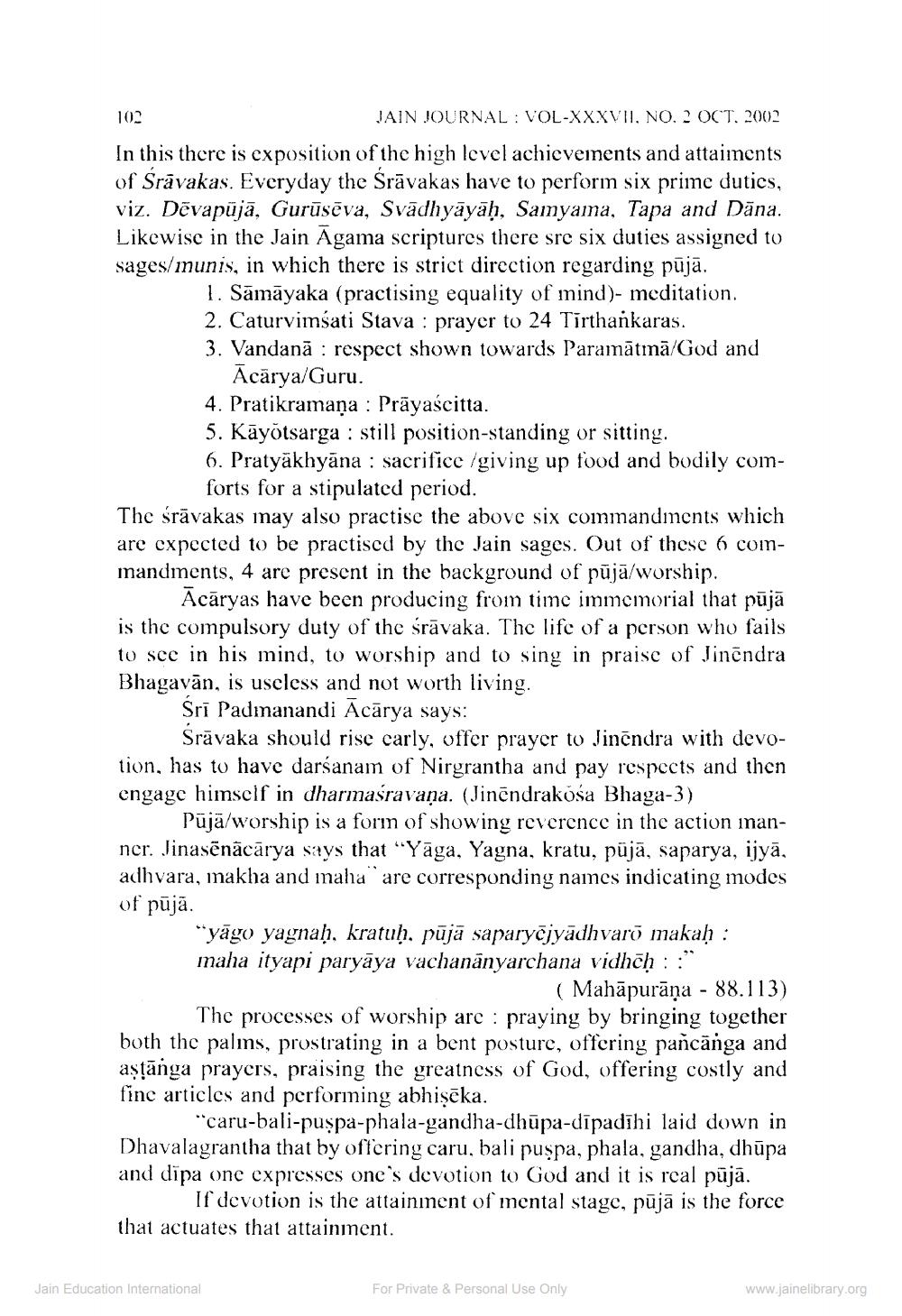________________
102
JAIN JOURNAL : VOL-XXXVII, NO. 2 OCT. 2002 In this there is exposition of the high level achievements and attaiments of Srāvakas. Everyday the Srāvakas have to perform six prime duties, viz. Dēvapūjā, Gurūsēva, Svādhyāyāḥ, Samyama, Tapa and Dāna. Likewise in the Jain Agama scriptures there sre six duties assigned to sages/inunis, in which there is strict direction regarding pūjā.
1. Sāmāyaka (practising equality of mind)- meditation. 2. Caturvimsati Stava: prayer to 24 Tirthankaras. 3. Vandanā : respect shown towards Paramātmā/God and
Acārya/Guru. 4. Pratikramana : Prāyascitta. 5. Kāyotsarga : still position-standing or sitting, 6. Pratyākhyāna : sacrifice /giving up food and bodily com
forts for a stipulated period. Thc srāvakas may also practise the above six commandments which are expected to be practised by the Jain sages. Out of these 6 commandments, 4 are present in the background of pūjā/worship.
Acāryas have been producing from time immemorial that pūjā is the compulsory duty of the srāvaka. The life of a person who fails to see in his mind, to worship and to sing in praise of Jinondra Bhagavān, is useless and not worth living.
Sri Padmanandi Acārya says:
Srävaka should rise carly, offer prayer to Jincndra with devotion, has to have darśanam of Nirgrantha and pay respects and then engage himself in dharmasravaņa. (Jinēndrakośa Bhaga-3)
Pujā/worship is a forin of showing reverence in the action inanner. Jinasēnācārya says that “Yāga, Yagna, kratu, püjā, saparya, ijyā, adhvara, makha and maha" are corresponding names indicating modes of pūjā.
"yāgo yagnah, kratuḥ, puja saparycjyadhvarð makah : maha ityapi paryāya vachananyarchana vidhch ::
( Mahāpurāņa - 88.113) The processes of worship are: praying by bringing together both the palins, prostrating in a bent posture, offering pancānga and astānga prayers, praising the greatness of God, offering costly and fine articles and performing abhişēka.
"caru-bali-puşpa-phala-gandha-dhūpa-dīpadīhi laid down in Dhavalagrantha that by offering caru, bali puspa, phala, gandha, dhūpa and dina one expresses one's devotion to God and it is real pūjā.
If devotion is the attaininent of mental stage, pūjā is the force that actuates that attainment.
Jain Education International
For Private & Personal Use Only
www.jainelibrary.org




